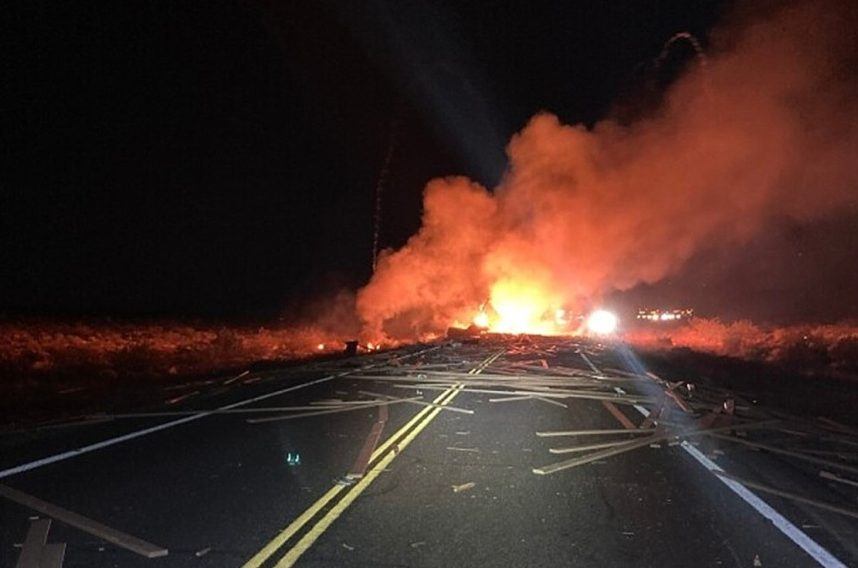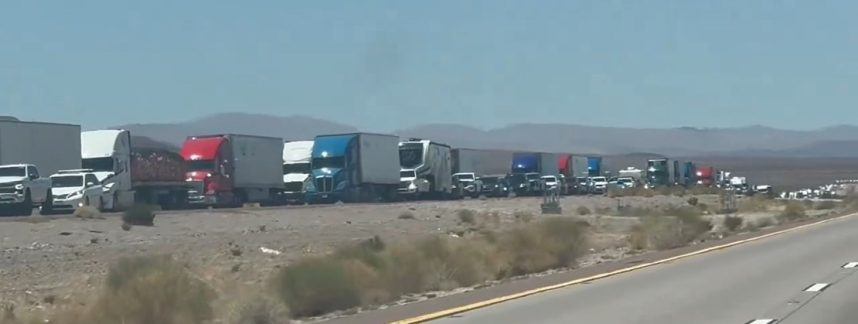Published on: September 17, 2024, 09:05h.
Last updated on: September 17, 2024, 09:05h.
A section of US 95, located northwest of Las Vegas in Nye County, remains closed on Tuesday evening following a collision involving two semi-trucks. One of the trucks was carrying lumber while the other was transporting lithium-ion batteries that ignited into uncontrollable flames.

Although both drivers escaped serious injuries, lithium fires are considered one of the most hazardous incidents on the road. They are hard to extinguish, emit toxic fumes, and have a high risk of reignition.
Most lithium fires trigger a heat reaction that ends up burning every battery in the cargo.
Even though the fire has been put out, the highway will remain closed until a hazmat crew completes the thorough cleaning of the fire’s toxic residue from the road.
Due to the closure, southbound traffic is being diverted to SR-160 and directed into Pahrump, Nev., resulting in an additional two-hour travel time to Las Vegas from that direction.
Playing With Fire
This recent incident marks the second closure of a Las Vegas freeway due to a lithium-ion battery fire in less than two months, though the situation is comparatively better this time.
In July, a truck carrying 31,000 lbs. of lithium-ion batteries overturned and caught fire, causing tens of thousands of motorists traveling to Las Vegas via Interstate 15 from Southern California to be stranded for hours.

In response to these incidents, Rep. Dina Titus (D-NV) emphasized the urgent need for federal regulation of lithium-ion battery transportation.
She recently introduced the Thermal Runaway Reduction Act, which proposes a 30% charge limit for all lithium-ion batteries transported by ground, matching the requirements for air transportation.
Titus stressed, “Without proper regulations, these accidents with resulting fires could lead to loss of life. Additionally, road closures and the environmental impact of extinguishing these fires have significant consequences on our region’s resources.”
She urges Congress to swiftly implement life-saving regulations to prevent future incidents.


